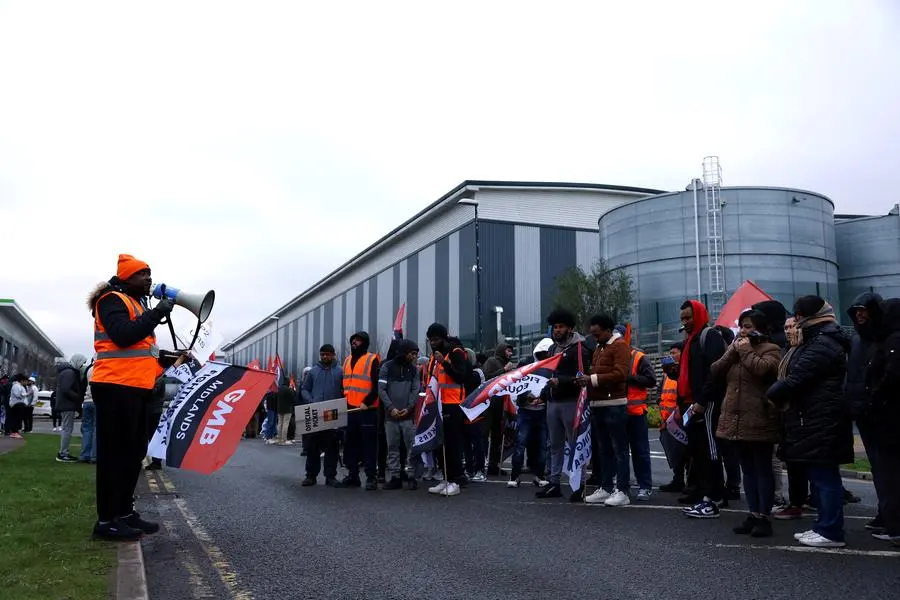PHOTO
Amazon workers at a warehouse in Britain moved closer to possibly gaining union recognition as a ballot process began, where a 'yes' vote would force the U.S. firm to negotiate labour terms with a union for the first time outside the United States.
The GMB union said on Wednesday over 3,000 Amazon workers at the Coventry, central England, site, would take part in a month-long process, which includes a vote overseen by the Central Arbitration Committee, an independent body with statutory powers.
The Coventry workers have been involved in a dispute over pay and union recognition for over a year, and have carried out numerous strikes.
"Coventry Amazon workers have rejected Amazon’s attempts to smash their union. Instead, they’ve stood up to be counted and demanded the chance to vote on union recognition," said Amanda Gearing, senior organiser for the GMB.
The retail and technology giant has historically opposed unionisation, but in 2022, workers at one of its New York warehouses forced the company to recognise a trade union in the U.S. for the first time.
If the Coventry workers vote to support union recognition, Amazon would be required to negotiate on terms, pay and conditions.
The GMB said workplace meetings on the ballot would begin from Wednesday, with voting from July 8. The result will be announced after July 15.
Amazon's preference has been to resolve issues with employees directly rather than through unions.
“Our employees have the choice of whether or not to join a union. They always have," an Amazon spokesperson said.
"Across Amazon, we place enormous value on having daily conversations and engagement with our employees. It’s a strong part of our work culture. We value that direct relationship and so do our employees."
Amazon employs about 75,000 in the UK, making it one of the country's top ten private sector employers.
Britain's opposition Labour Party, which according to opinion polls is likely to win the July 4 election and end 14 years of Conservative rule, has promised to give workers more rights and unions more power. (Reporting by James Davey Editing by Bernadette Baum)





















